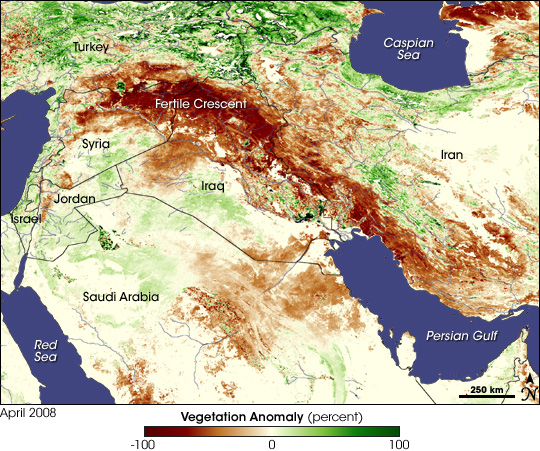For better or worse, I am a natural editor. I
tend to find typographical errors - they jump out at me whenever I come across
them in newspapers or books (or love letters / emails from my wife), and it
makes it difficult for me to concentrate on the subject at hand. (Of course, as I am posting this on a blog for all to see, I'm now hoping that there are no embarrassing typos.)
Traditionally speaking, Judaism has never accepted
the idea that there are errors in the Torah. The Torah is not a newspaper
or a printed book. During my years of critical study of the Hebrew Bible
at the Jewish Theological Seminary, I learned a different approach, but in
general, the rabbinic method has been to assume that the text of the Torah is infallible.

The traditional line of thinking is thus: those
things that we might see in the text of the Torah that look like errors --
garbled words, or inconsistent language, or things that seem to be missing --
are deliberate, put there during the holy transmission process from God to
Moses on Mt. Sinai. Incomprehensible or seemingly “mis-spelled” words are
not incomprehensible to God; they are, rather, a challenge to us to understand
them, to try to figure out what exactly was meant. It’s all part of the
large intellectual puzzle that we are meant to solve as we engage in the mitzvah
of talmud torah, learning the ideas and concepts of our tradition.
(I spoke about this over the High Holidays as being one of the three essential
reasons to be Jewish.)
Tefillah /
prayer, however, is an entirely human enterprise. God wrote the Torah,
but we wrote the siddur. With the exception of those passages that
are directly quoted from the Tanakh, like the three paragraphs of the Shema
or the Psalms, there is consensus that all of the tefillot in our siddur
/ prayerbook were written by people. Yes, the words of tefillah are
borrowed from the Tanakh, but they are re-arranged and transmogrified to
suit the needs of the composer. Much of the time the phrases in the siddur
deliberately call to mind passages in the Torah to which they relate.
But sometimes, the phrases in the siddur consciously
edit the text. Sometimes, our tradition deliberately mis-quotes the words
of the Torah. And a particularly well-known example appeared in today’s
reading. It’s a text that is surely familiar to everybody here, but I’d
like us all to take a look at it right now. It’s in your humash
(Etz Hayim) on page 541, verses 6 and 7:
וַיַּֽעֲבֹ֨ר יְהוָ֥ה ׀ עַל־פָּנָיו֮ וַיִּקְרָא֒ יְהוָ֣ה ׀ יְהוָ֔ה אֵ֥ל
רַח֖וּם וְחַנּ֑וּן אֶ֥רֶךְ אַפַּ֖יִם וְרַב־חֶ֥סֶד וֶֽאֱמֶֽת׃
נֹצֵ֥ר חֶ֨סֶד֙ לָֽאֲלָפִ֔ים נֹשֵׂ֥א עָוֹ֛ן וָפֶ֖שַׁע
וְחַטָּאָ֑ה וְנַקֵּה֙ לֹ֣א יְנַקֶּ֔ה פֹּקֵ֣ד ׀ עֲוֹ֣ן אָב֗וֹת
עַל־בָּנִים֙ וְעַל־בְּנֵ֣י בָנִ֔ים עַל־שִׁלֵּשִׁ֖ים וְעַל־רִבֵּעִֽים׃
The Lord passed before [Moses] and proclaimed: “The Lord! The Lord! a God compassionate and gracious, slow to
anger, abounding in kindness and faithfulness, extending kindness to the
thousandth generation, forgiving iniquity, transgression, and sin; yet He does
not remit all punishment, but visits the iniquity of parents upon children and
children’s children, upon the third and fourth generations.”
(Ex. 34:6-7)
Reading from the Torah, does that sound correct?
Not exactly what we expected, right? We said this passage (well,
most of it) over and over on the Yamim Nora’im, the High Holidays, and
that end of what we just read seems to take a sudden about-face. Holding
the children and grandchildren responsible for the sins of the parents?
This seems curious, particularly following that long list of positive attributes.
Over the course of the holiday season, we hear this
passage recited over and over in our liturgy. It is known as the “shelosh
esreh middot,” the Thirteen Attributes of God. We chant it three
times when we take the Torah out on festival weekday mornings, and over the
course of Yom Kippur we chanted it perhaps as many as fifteen times over the
course of the day, repeating it a couple of times during the Selihot prayers
appended to every Amidah. It’s also read from the Torah on minor fast
days, like the 17th of Tammuz and Tzom Gedaliah, and the congregation
chants this passage aloud before the ba’al qeri’ah, the Torah reader
does so.
But in each of those cases, we cut it off after the word
“venaqqeh,” which seems to mean, “God cleanses us of our sin.” The
difficulty is that in doing so, we not only cut off in mid-phrase, but we
actually make that final attribute mean the opposite of what it says in the
Torah. It’s kind of like if I were interviewed by a journalist about
traditional Ashkenazi cuisine, and, when questioned about chopped liver (which,
although my family members enthusiastically urged me to taste over and over
throughout my childhood, I never learned to appreciate), I said, “I must
confess that I do not love chopped liver.” And when the article about
Rabbi Adelson’s favorite Jewish holiday foods comes out, I am quoted as saying,
“I must confess that I... love chopped liver!” That is the extent to
which we modify this quote.
Let’s take a closer look.
First the Hebrew. Look at p. 541, three lines
up from the bottom of the Hebrew. On the word, “venaqqeh,” you’ll
see a ta’am, a trope mark, known as a pashta (it looks like a
slightly-curved hook extending up from the upper-left corner of the heh).
Anybody who knows anything about trope knows that the pashta (although
it is a slightly disjunctive trope) connects that word with the words that follow
it; it makes a musical phrase out of “venaqqeh lo yenaqqeh.” To
cut off after the pashta makes no sense. (Trope is, by the way,
the most basic form of Torah commentary.)
Grammatically speaking, those three words together (“venaqqeh
lo yenaqqeh”) are a unit. It is called an infinitive absolute, where
the infinitive form appears first, and then an imperfect form follows. Naqqeh
is the infinitive, and yenaqqeh is the imperfect. Taken
together, naqqeh yenaqqeh would mean, “God shall surely cleanse.”
(Many of us are familiar with a similar structure in the opening of the
second paragraph of the Shema: “Vehayah im shamoa tishme’u el mitzvotai”
- “If you shall surely heed my mitzvot...” But the “lo” in our
case makes it mean precisely the opposite: “God shall surely NOT cleanse.”
Now, the ancient commentators looked at the list of
Thirteen Attributes, and saw that the first twelve are positive (God is compassionate,
gracious, slow to anger, etc.) and then at Number Thirteen, and figured that
something is wrong here. They tried to explain this away by doing the grammatically
impermissible: by splitting the infinitive absolute into two words: naqqeh,
God cleanses, and lo yenaqqeh, God does not cleanse. There is an
opinion in the Talmud (Yoma 86a) that this means that God cleanses those
who return, who seek teshuvah / repentance, and God does not cleanse
those who do not return.
The medieval commentators follow the Talmudic example
by softening the blow in other ways: Rashi tells us this means that the
punishment described is meted out a little bit at a time, rather than all at
once. Ibn Ezra tells us that even for those of us who repent, we are
never entirely cleansed of our sins.
The translation in our humash, the New
Jewish Publication Society translation (NJPS) actually pulls a punch here.
It translates “venaqqeh lo yenaqqeh” as “yet He does not remit all
punishment.” This is an attempt to incorporate the ideas of the
commentators - that the Torah is not telling us that God surely does not cleanse,
but rather that God does not always entirely forgive.
All of this indicates clearly that nobody agrees with
the plain meaning of the text, that this line is actually calling out to be
edited. And that is exactly what we do.
Take a look at what it says in our siddur, in
the middle of p. 140. This is what we chanted three times on Monday and
Tuesday morning when we took out the Torah on the first two days of Sukkot, and
we’ll do the same for Shemini Atzeret and Simhat Torah in
a few days. The Thirteen Attributes are cut off in the middle of that
infinitive absolute: venaqqeh. Says the translation, “and granting
pardon.” End of story.
There is an essential message here: that we have edited
God. That when we invoke God’s name, we call out to the God of compassion,
of grace, and of pardon, not the God of punishment, of vengeance, of
retribution. Our God is the one that cleanses us of our sins, not the one
that makes our great-grandchildren suffer on our behalf.
And you know what? That is exactly how it
should be.
We create our relationship to the Divine: Each
one of us understands our Creator through the prism of own experience. We
use our traditional texts to help understand what we cannot perceive directly
through tangible evidence, and we each fashion our own framework through which
we relate to God.
I relate much better to the God that heals the sick
and comforts the bereaved than the God that rewards the good and punishes the wicked.
And, since clear evidence of any of those things is hard to come by, I
relate even better to the God that maintains the laws of physics and
thermodynamics and sustains us with billions of tiny, molecular miracles every
instant.
But I don’t want to tell you what to believe.
Your relationship with God is yours. And if the God that is
presented in the Torah works for you, then go with that. If not, then you
are allowed to edit. We edit our tefillot so that they suit our
understanding of God as forgiving; we have the option to edit even further.
And you know what? That God -- the
compassionate God, the God of little miracles, the God who heals the sick --
that’s the God that we want to emulate. Just as we edit God, qal vahomer,
all the moreso, can we edit ourselves. We can dedicate more of our energy
to be loving, forgiving, caring, to bringing tiny moments of joy and
miraculousness into all others who are around us.
This entire week has been dedicated to the unbridled joy
of Sukkot, to the notion that in the wake of achieving forgiveness for our
sins, we can celebrate unabashedly this festival of welcoming guests and of
fashionable sukkah dinner parties. It is a time that we can recall
not the stern countenance of the God of judgment, but the soft features of the
God that wants us to live lives that are satisfying, upright, and beneficial to
all.
Shabbat shalom. Mo’adim lesimhah!
~
Rabbi Seth Adelson


